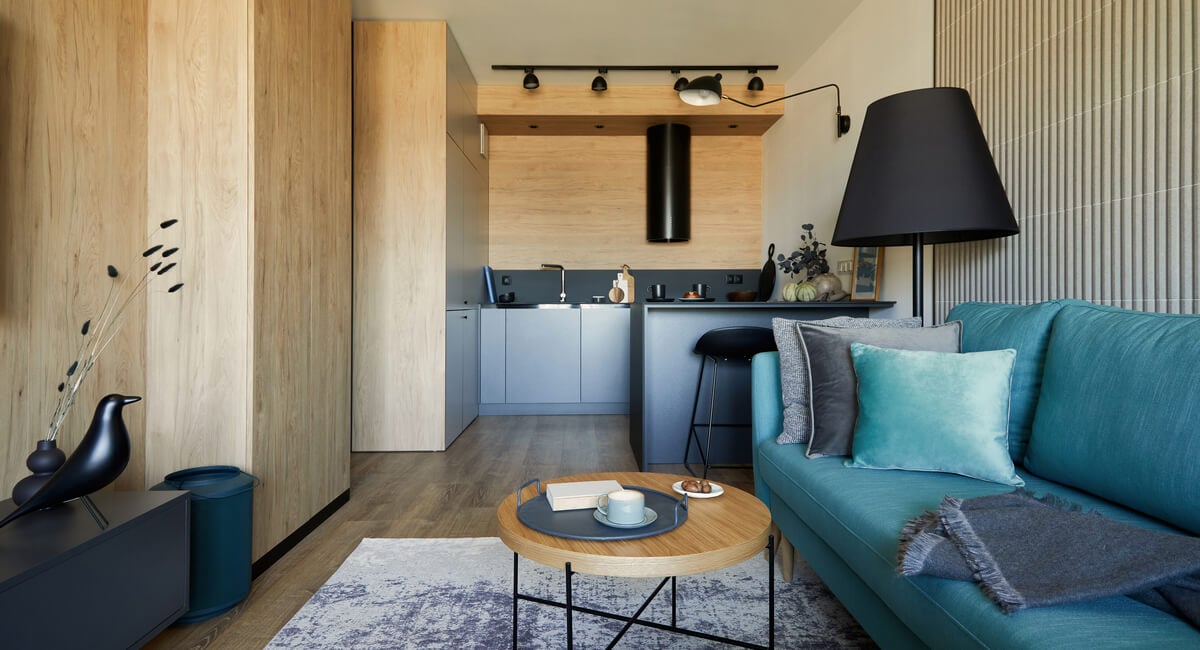Living in a small house or apartment can be cozy and yet a bit challenging. If you’re willing to make some adjustments to your lifestyle and space, you can learn to love living in your small space.
The following are some of the best tips for living in a small home or quarters:

Declutter
Downsizing is one of the best thing you can do when moving into a smaller home. Clutter builds up extremely easily in small houses because of the limited storage space. Consider what items you truly need for your home to be practical and functional. If you haven’t used something in a year, you probably don’t need it. Selling or donating unused clothes, kitchen utensils, electronics, books, or other items will clear up so much space and allow you to keep your home organized.
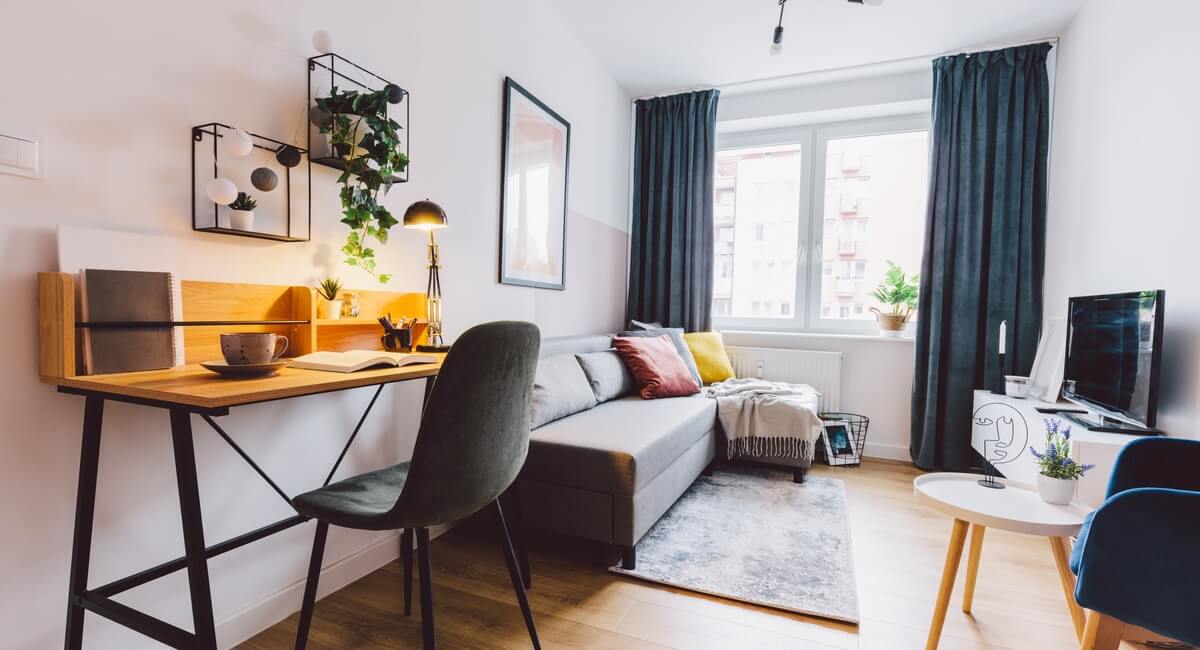
Use Vertical Space
When you have limited square footage, you have to take advantage of vertical space. Tall bookshelves, dressers, and cabinets offer storage space without taking up too much room on the floor. Hanging plants or artwork high on the walls will also draw the eyes upward, which creates the illusion of a larger and more open space.

Optimize Your Kitchen
The kitchen is one of the most difficult rooms to keep organized, especially if you’re working in a small space. Consider selling or giving away the appliances that you don’t use frequently, and get creative with storing your kitchen items. For example, you could use a magnetic strip to store knives along the wall instead of keeping a knife block on your counter. Similarly, consider hanging a spice rack on the wall or on a cupboard door to free up storage space. A hanging basket can store snacks or produce, too. If you need more counter space to prepare meals, you could invest in a large wooden cutting board to place over the sink.

Hang Mirrors
Mirrors can make even the tiniest spaces feel roomy and open. If you have free wall space, fill it up with mirrors of varying shapes and sizes. Mirrors that reflect natural sunlight are especially valuable in small homes.
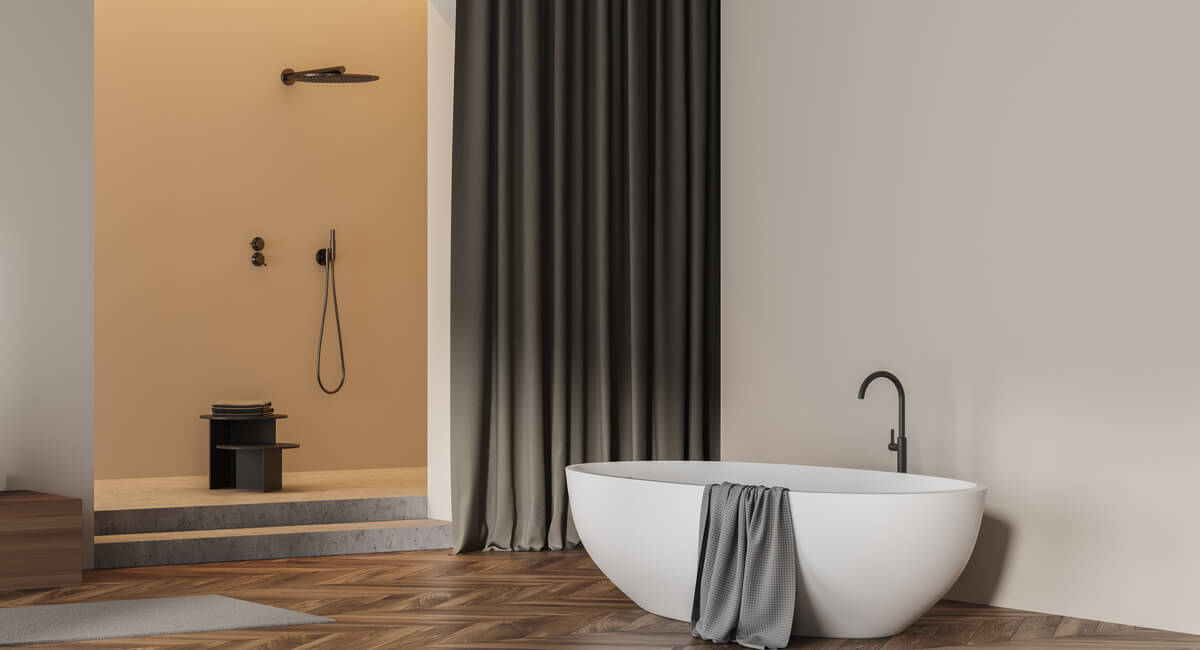
Install Tall Curtains
Hanging your curtains at the top of the ceiling instead of directly above the window can make the room feel taller. However, heavy or dark curtains will make the space feel cramped. To create more vertical space while also brightening up the room, opt for a light and flowy material. Bright white curtains can look especially vibrant in small rooms.
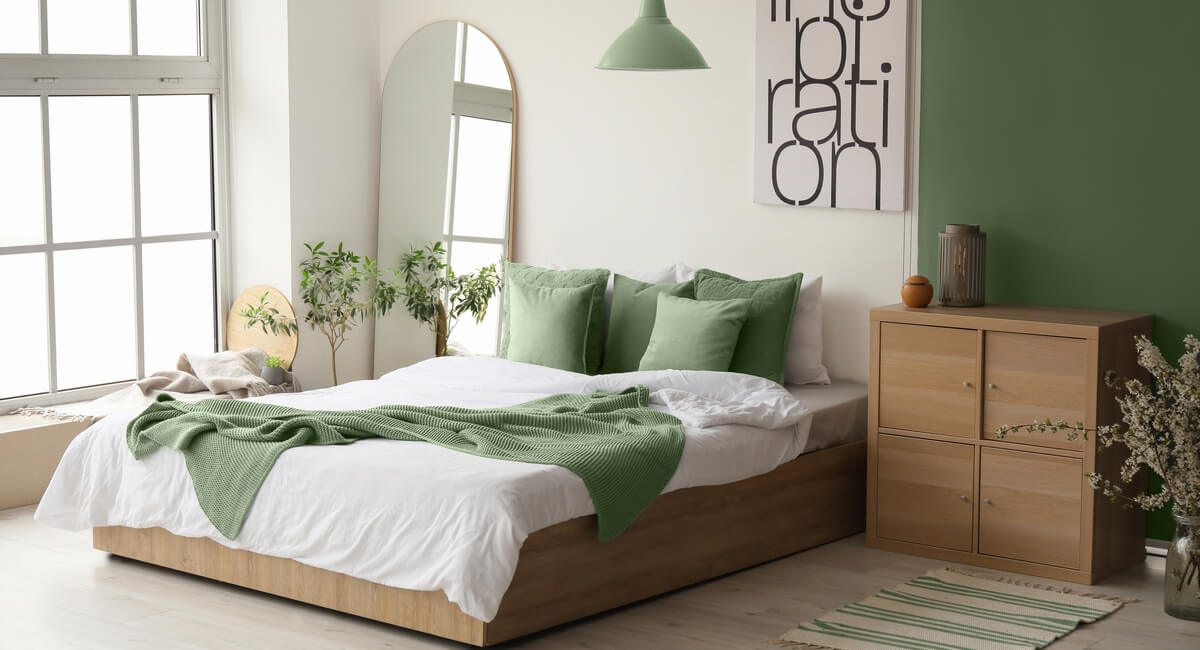
Choose Light Colors
Dark wall paint, rugs, and furniture can make a small room feel cramped and claustrophobic. Busy wallpaper or loud decor can be overwhelming in small homes, too. Instead, opt for light and neutral shades that brighten up the space. Then, you can add pops of color with throw pillows or wall decor. This creates a visually interesting texture while maintaining a clean, bright, and organized atmosphere.
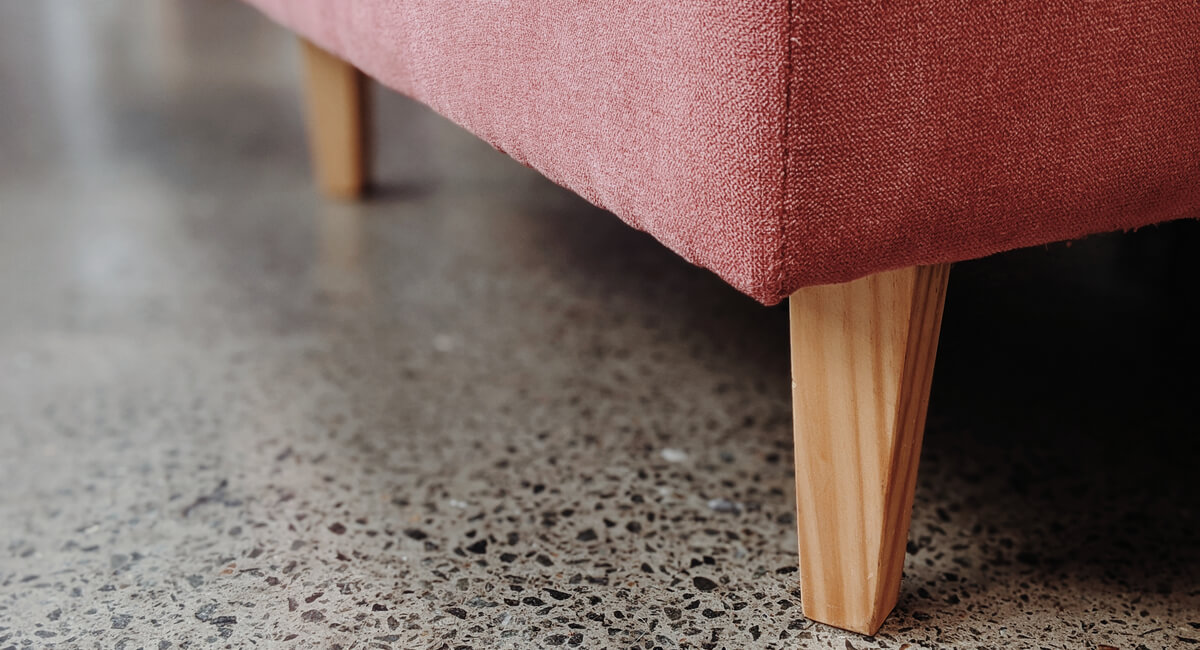
Opt for Furniture With Exposed Legs
Couches, tables, and bed frames with exposed legs create the illusion of a more open and spacious room. While it’s probably not worth the cost to replace your furniture just for this purpose, you can keep this trick in mind when you’re in the market for new items. An elevated bed also offers plenty of storage space underneath.
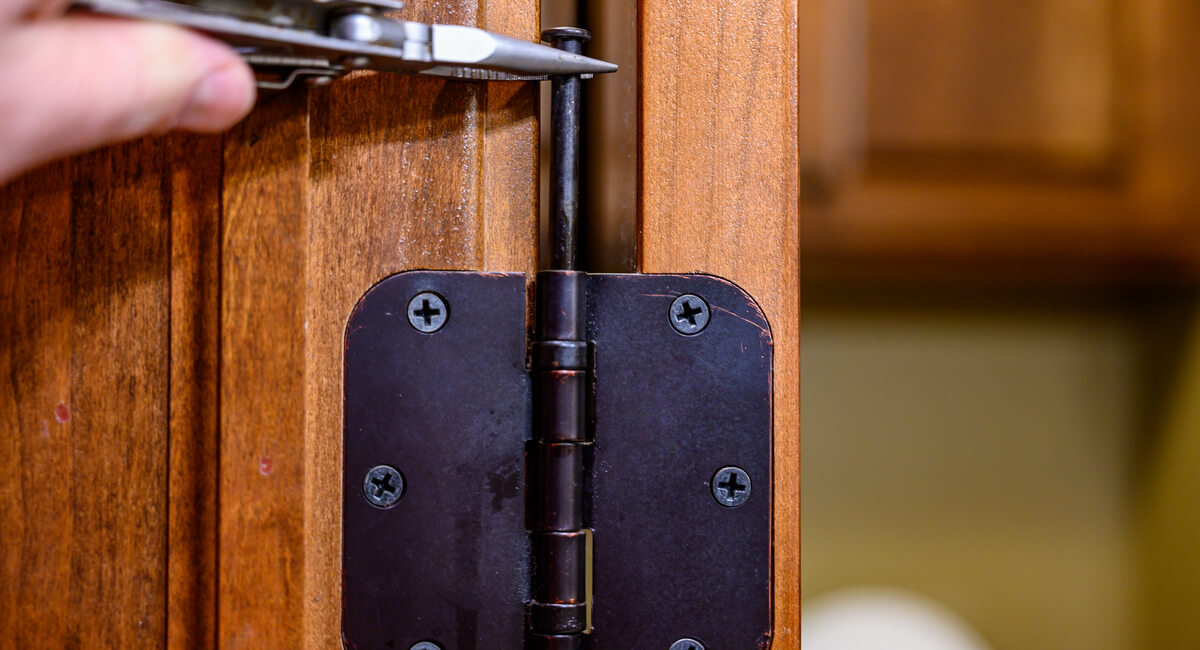
Remove Doors
Removing closet, bedroom, or office doors isn’t the right choice for everyone. For instance, if you live with roommates, you almost certainly will not want to remove your bedroom door. However, taking the doors off can sometimes help to create a more open layout. When you don’t have to worry about clearing space for the door to open, you also have more freedom with furniture placement. Removing closet doors that swing into the room can be especially helpful.
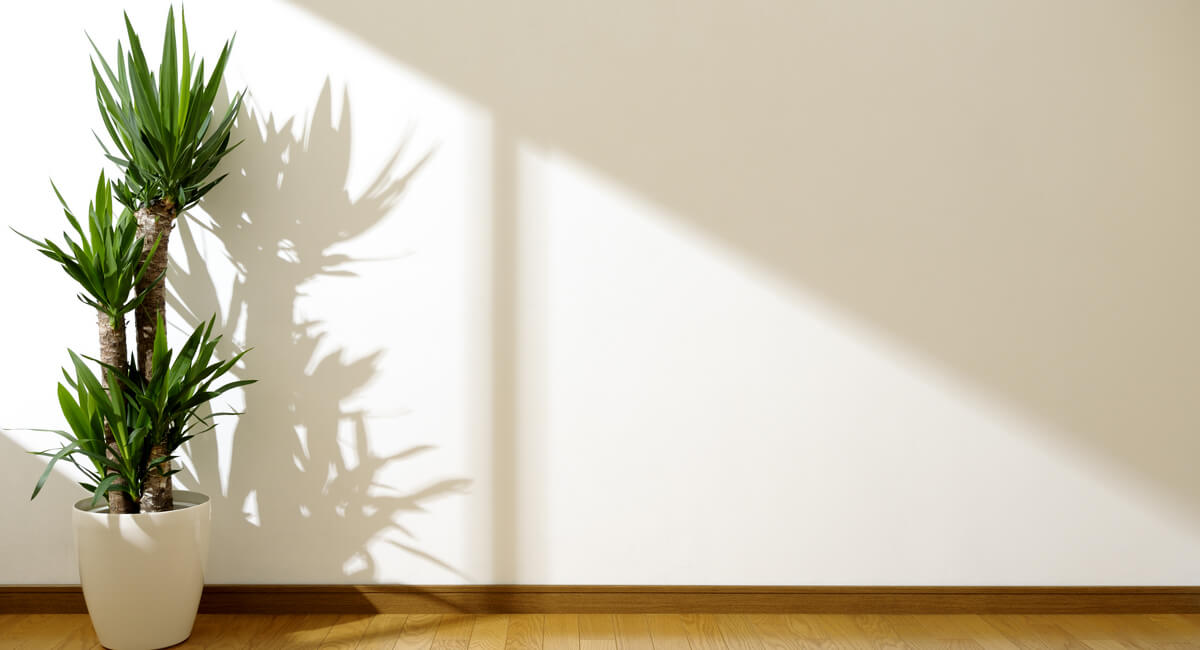
Maximize Natural Lighting
Embracing natural lighting is a great way to make any home feel warmer and more inviting. Bright natural light in a small home can make a huge difference. Opt for light curtains that can easily be pulled away to let the sunlight in. You could also place a mirror opposite the window to amplify the natural light.
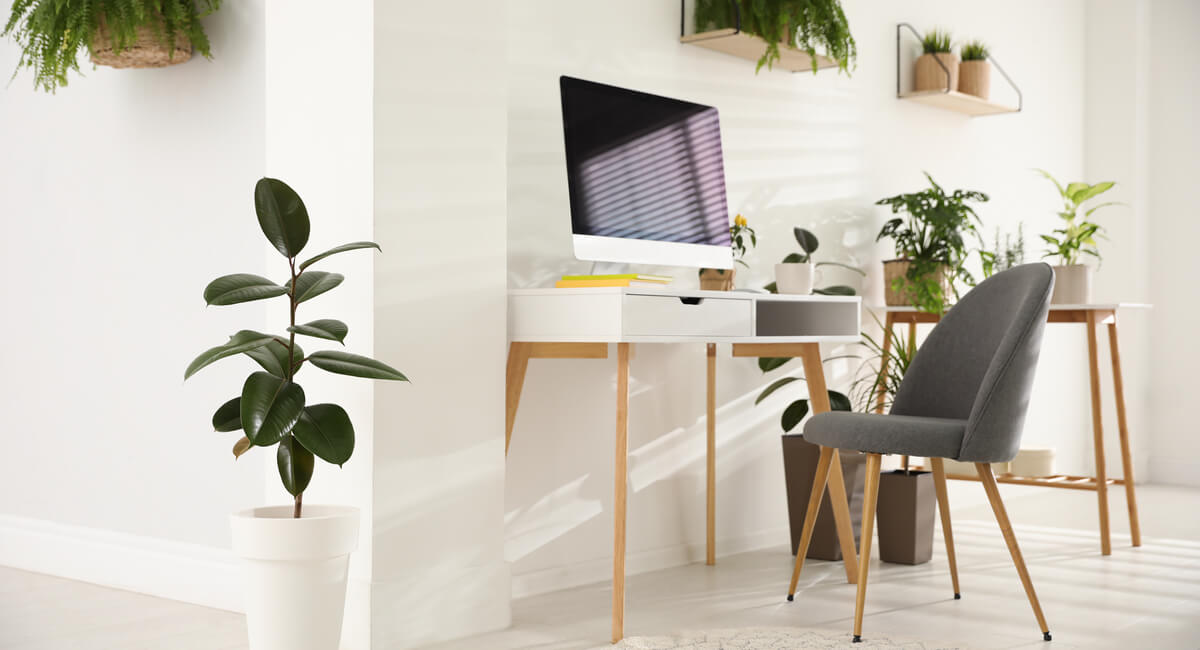
Stay Organized
Once you’ve optimized the space in your small home, you have to keep it organized. Even a little bit of clutter can make a cramped room feel chaotic. Make sure that all of your belongings have a designated place, and return every item to its spot as soon as you’re done using it. Once every month or two, go through your belongings to see if you can get rid of anything. By staying on top of the organization, you avoid having to complete a major overhaul of your living space when you’ve accumulated too much clutter.

Get Outside
No matter how well you design your home, living in a small space can take a toll. If you feel claustrophobic, stifled, or restless, try to spend more time out of the house. Take a walk in the evenings to decompress, or go to a coffee shop on the weekend to get a change of scenery. This is particularly important if you live with other people. Regularly getting space from your family or roommates can help you maintain positive relationships.
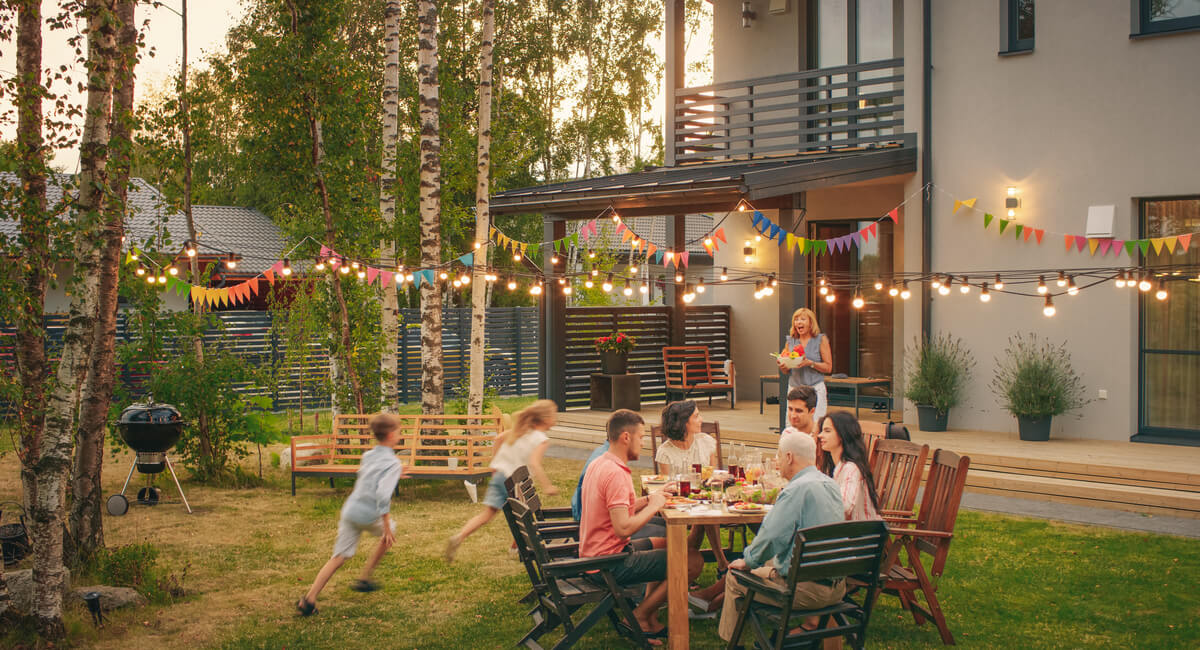
Say No to Guests When You Need To
If your home doesn’t have the space to accommodate guests, don’t be afraid to say no to friends or family who ask to visit. You’re never obligated to host holiday parties or allow guests to stay over. Your loved ones should understand that you’re working with limited space and may not be able to accommodate them. Setting boundaries in your home is vital, and giving yourself permission to say no will benefit your mental health.
Living in a small space does have its challenges, but you can make it work with some thoughtful planning. Try to downsize on your possessions, choose furniture and decor that open up the space, and get creative with storage and organization. You might have to make some compromises, but a well-designed little home can be incredibly cozy and comforting.

